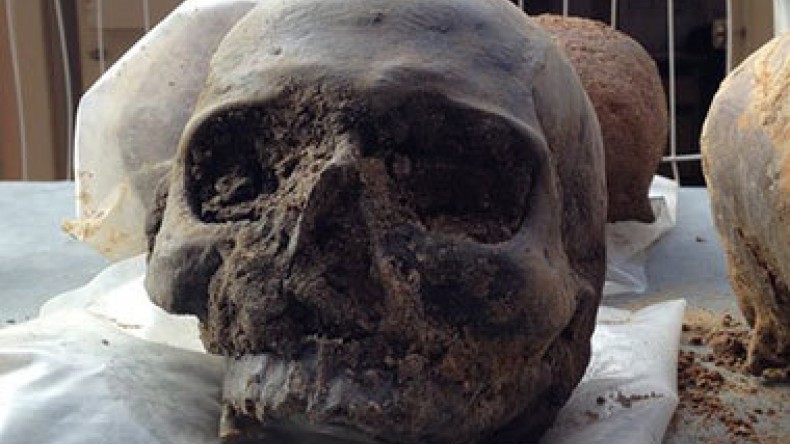
Roman skulls washed down lost river
Archaeologists working with London's Crossrail project have uncovered 20 skulls believed to be from the Roman period, the BBC reported.
It is likely the bones were washed from a nearby burial site along one of London's "lost" rivers - the Walbrook.
Since the Crossrail project began, about 10,000 Roman items have been discovered.
These latest finds could give new insights into the lives of Roman people.
Near-intact pottery artefacts were also found which likely travelled along the same route as the skulls. Other bone fragments would not have been washed as easily down the river.
Paved over in the 15th Century, the Walbrook river divided the western and eastern parts of the city, its moist muddy walls providing exceptionally good conditions for artefacts to be preserved.
The discoveries were found about three metres below ground and underneath the the Bedlam cemetery, a burial ground where hundreds of skeletons have been unearthed.
Though they have yet to be forensically dated, Nicholas Elsden from the Museum of London Archaeology said they were likely to be from the 3rd to 4th centuries AD, as that was when Romans buried their citizens as opposed to cremating them.
"It's relatively unusual find to find so many concentrated [in one area] when you're not in a graveyard. We're 100 yards outside the Roman city walls."
Roman law required burial outside the city, explained Mr Elsden, which meant there were burial sites circled around the town.
"What we're looking at here is how the Romans viewed their dead. You wouldn't imagine modern burial grounds being allowed to wash out into a river," he told BBC News.
Newsfeed
Videos






























